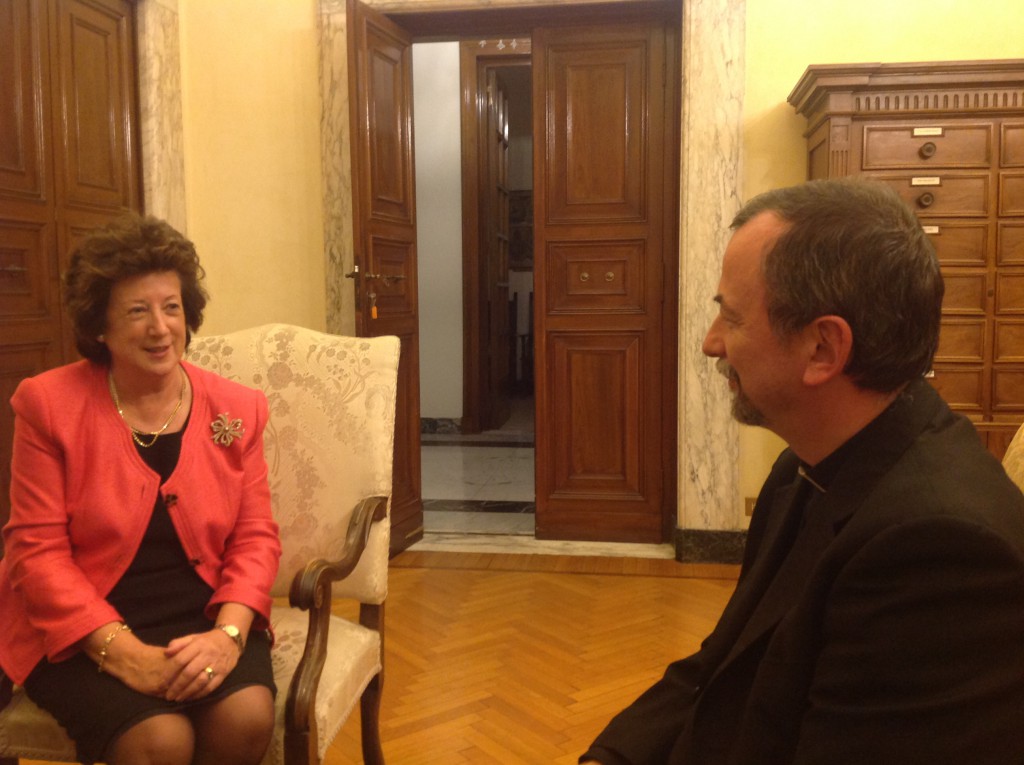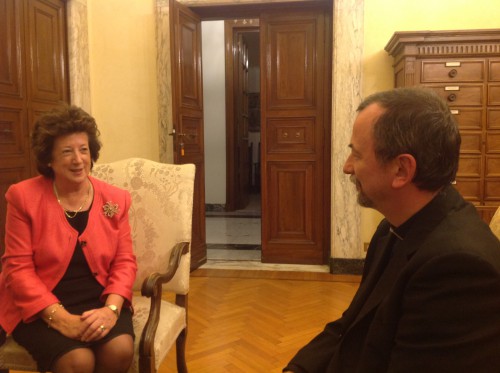19th February 2015
#freedomtobelieve


Most of the world’s population lives in countries where freedom of religion or belief is restricted in some way, and over a third where such limitations are extreme. Some 60 countries retain on their statute books laws against blasphemy, or apostasy, with often draconian punishments for those who transgress. And yet, as long ago as 1948, Article 18 of the Universal Declaration of Human Rights established that: “Everyone has the right to freedom of thought, conscience and religion; this right includes freedom to change his religion or belief, and freedom, either alone or in community with others and in public or private, to manifest his religion or belief in teaching, practice, worship and observance”. It is a clause that far too many countries still honour in the breach.
Baroness Anelay, Minister for Human Rights at the Foreign Office, recently launched a social media campaign #freedomtobelieve as part of our efforts to build partnerships and alliances to change this situation. As she commented in a recent blog posting, we are under no illusion “that a UN resolution automatically translates into action in the societies where it is most needed”. But there is a great deal that those who believe in religious freedom and pluralism and oppose religious intolerance can do if we are prepared to work together. For example, Baroness Anelay was recently at the Holy See to discuss with senior Vatican officials, including those responsible for the Eastern Churches currently under such pressure from ISIL in Iraq and Syria, what more we and other governments could and should be doing. She was accompanied by Baroness Berridge, Chair of the All Party Parliamentary Group on Religious Freedom, who is leading a strong cohort of British parliamentarians determined to see the UK do more.
Just last week, the Foreign Office hosted events at Wilton Park and in Geneva to explore what more we and others can do. There is as yet no clear international consensus on how best to ensure that Article 18 is respected universally, but that should not stop us and partners from taking forward practical action and sharing best practice to seek to make it so. I spoke recently in London to officials from the Ministry of Defence, Department for International Development and the Foreign Office about the issue. It is just this sort of approach – cross-disciplinary, harnessing expertise in different areas – that is needed to improve the way governments can respond, interacting with the human rights defenders, journalists, lawyers, community leaders and others on the front line when people are persecuted for their simple wish to teach, practise, worship and observe their own faith.
If you support the effort, do support #freedomtobelieve. Every voice counts.